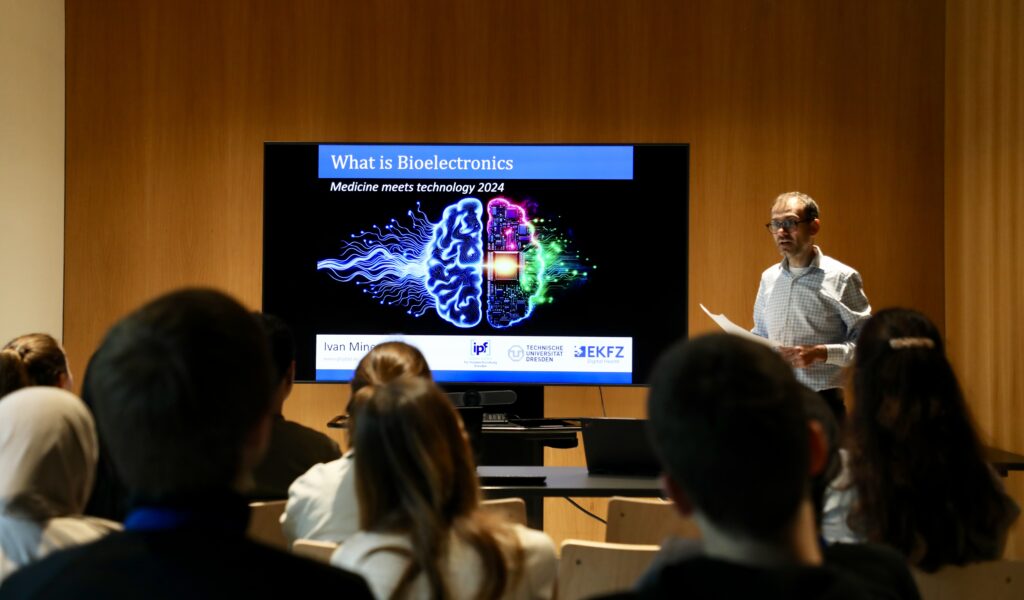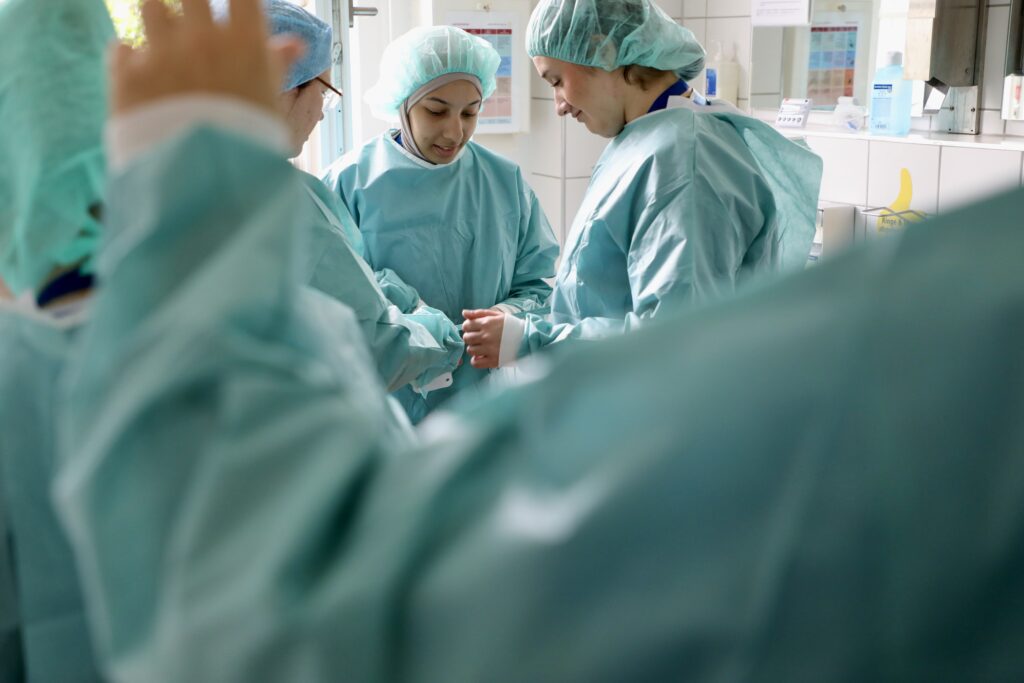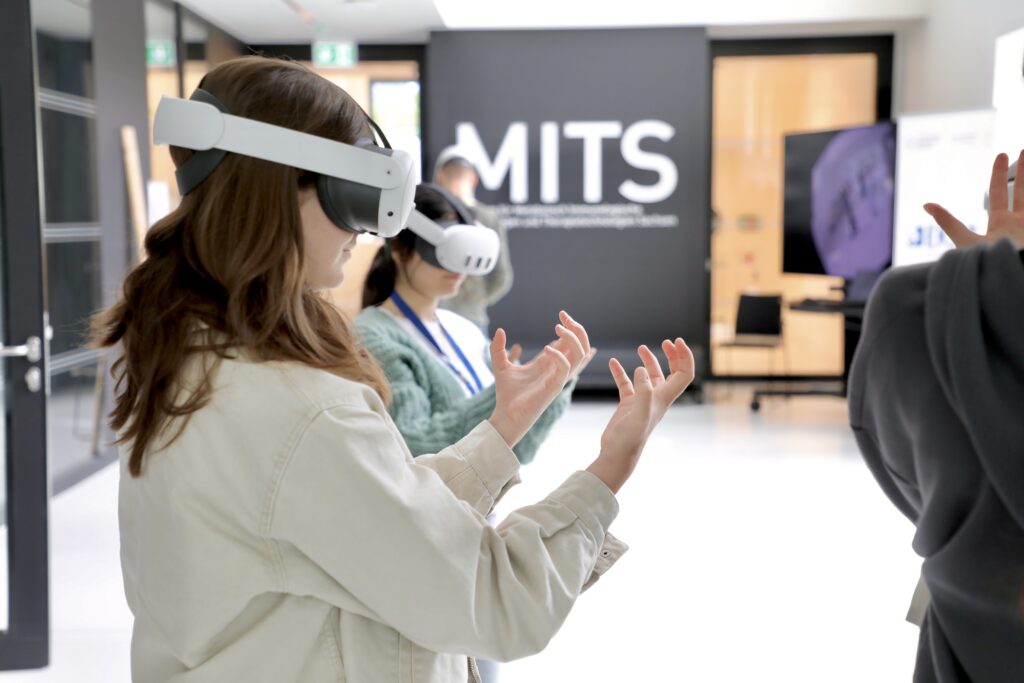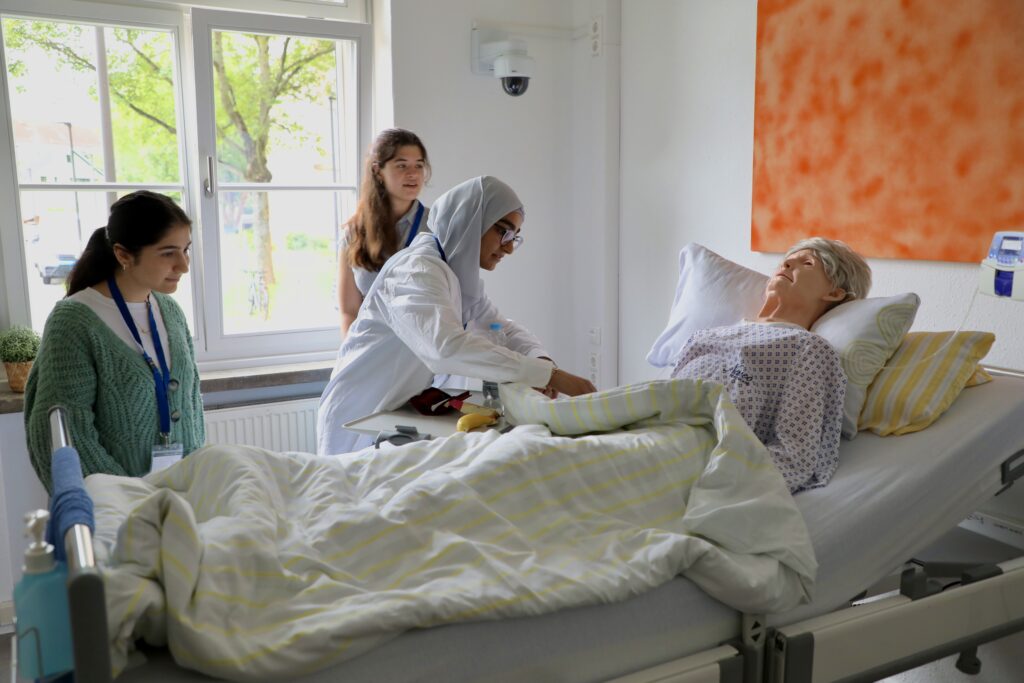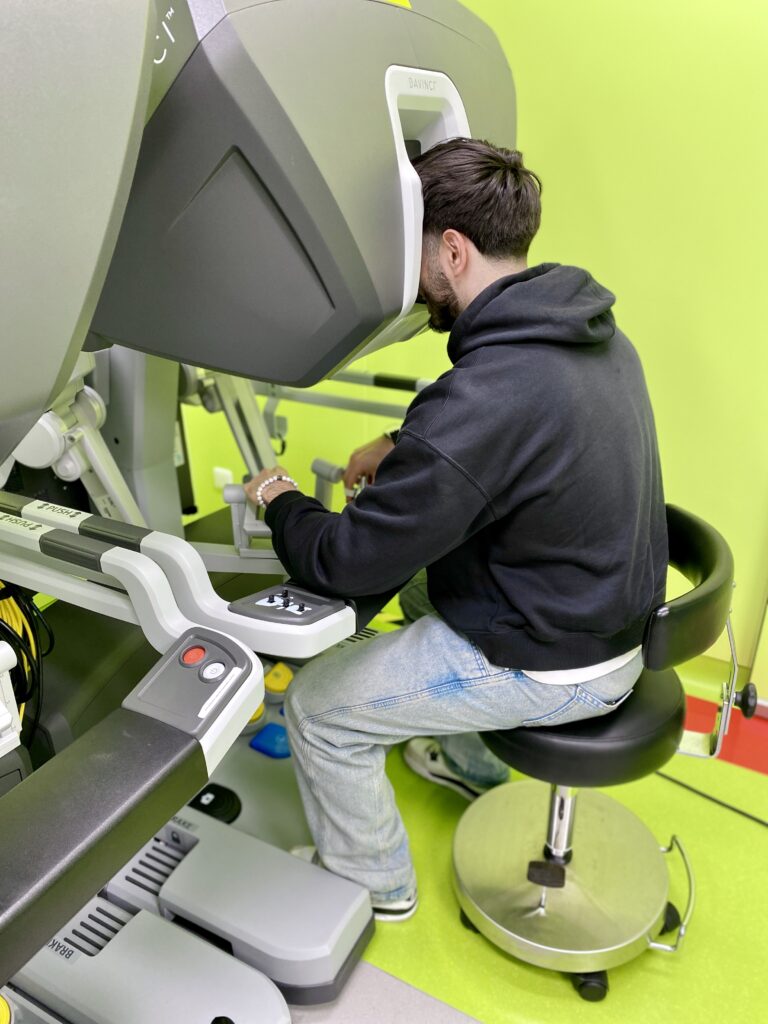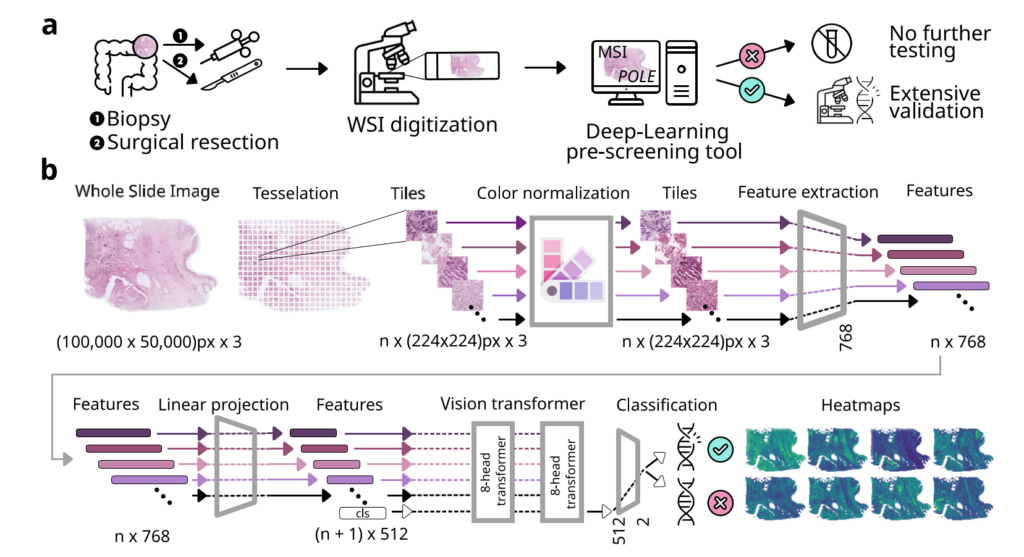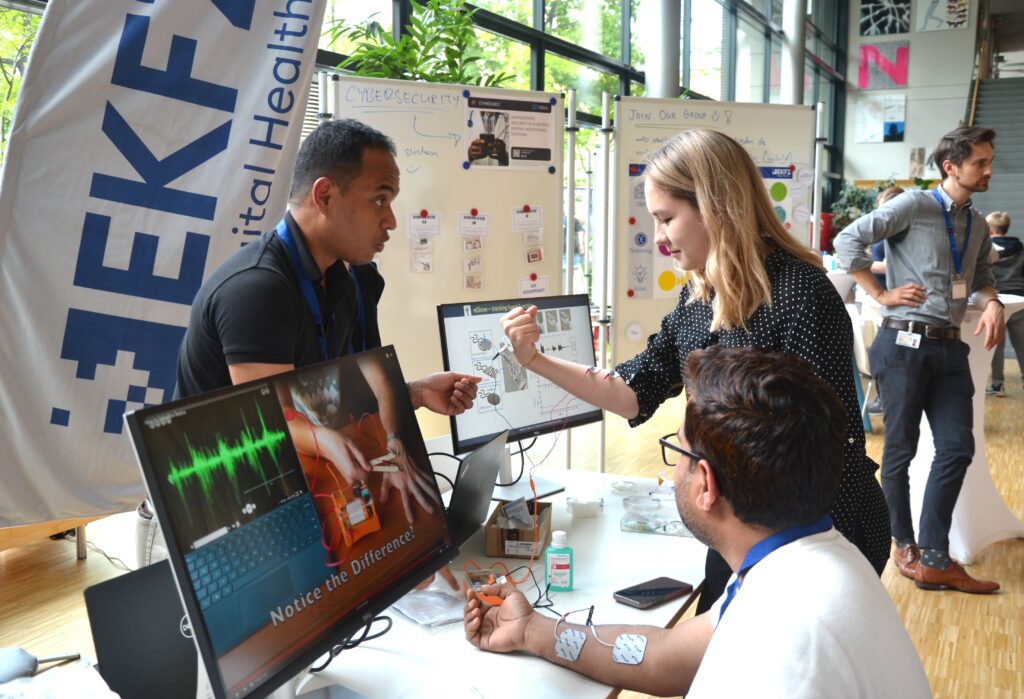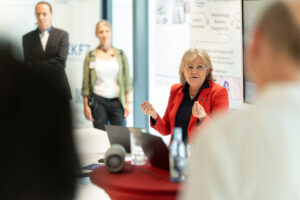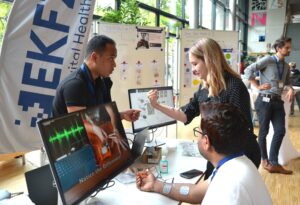Medicine meets technology
The Else Kröner Fellows, high school students on the Roland Berger Foundation’s German Student Scholarship, visited Dresden at the beginning of June. The 16 fellows learned more about innovative medical technology and latest developments in medicine.
The program offered a mix of lectures, hands-on seminars and practical training. Researchers and professionals from various fields explained the latest advances in medical technology and their future applications in healthcare. The scientific program was accompanied by social events and a hike in the Saxon Switzerland National Park.
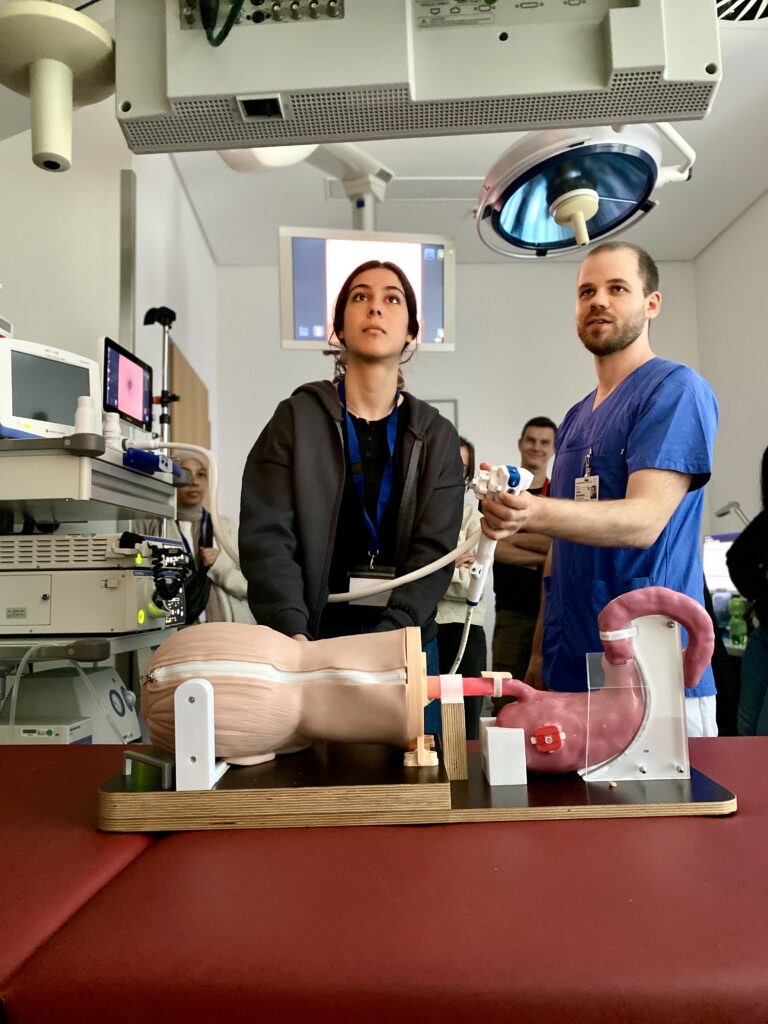
On the first day, EKFZ Professor Ivan Minev presented his research on electronic, biocompatible implants. He discussed the challenges of successful communication between machines and living systems. The team from the MITZ (Medical Interprofessional Training Centre) presented a clinical hands-on training session, including the necessary preparations before surgery, how to detect neurological deficits with the BEFAST test, and how to search for errors in a test patient room, the so-called “room of horrors”. In the afternoon, Nathalie Senechal led the students in a virtual reality (VR) scenario for anxiety therapy applications, and Dr Franz Brinkmann offered endoscopy training to the students. During the evening get-together, the fellows were able to network with various people working in the medical sector, who shared their paths that led them into medicine.
The second day was dedicated to the use of artificial intelligence in medicine. Dr. Hannah Muti gave an overview of the potential and current challenges. During the workshops the students discussed in small groups the potential of AI applications in medicine as well as potential risks such as data protection and ethical issues. Jakob Dremel and Tönnis Trittler presented the research projects in the EKFZ prototyping facility. They showed how 3D printers and CNC milling machines are being used in several research projects to develop customized medical technology.
On the final day, Franziska Klinkewitz gave the students an overview of study opportunities at the TUD and what they need to consider when applying. Dr Witold Polanski introduced the exciting research field of brain-computer interfaces and possible future applications. At the end of the Summer School, the students had the opportunity to visit the experimental operating room at the NCT / UCC of the University Hospital Dresden and see how the Da Vinci robotic surgical system helps surgeons to perform minimally invasive surgery with the highest precision.
It has been inspiring and eventful four days for the fellows in Dresden, and they have highlighted the diversity of the program. The fellows enjoyed the opportunity to learn more about various medical topics, try out medical equipment, and gain an insight into the daily work of researchers and physicians.
More News
Flexible suites of Digital Health Technologies: Need for tailored regulation and reimbursement
How deep learning identifies key mutations in colorectal cancer
Bioelectronics Research and Regulatory Race at the Dresden Science Night 2024


